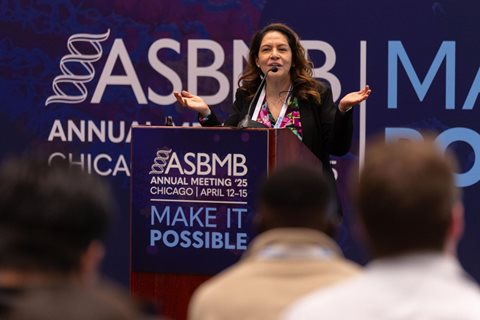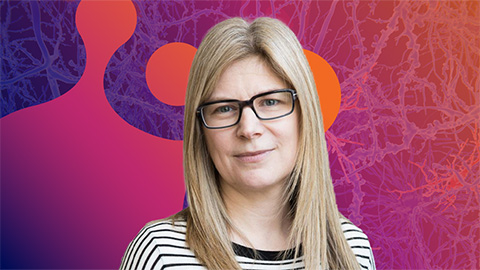Taking translational research out of the lab: working on clinical trials
While each stage of drug development is extremely complex and rigorous, the clinical research step is make-or-break. Most drugs fail during clinical trials, and only about 14% get Food and Drug Administration approval. With that success rate, there’s a need for lots of trials all the time.
Conducting a clinical trial is a huge undertaking: A single trial can require hundreds of participants and can span several years. In addition, and here’s where you come in, they require a wide range of personnel working in clinical, scientific and regulatory roles.

This week, we take a look at the duties and skills required of research scientists, research coordinators and research associates working on clinical trials. These are positions available for job-seekers with Ph.D.s and master’s degrees.
Clinical research scientist/assistant
Clinical research scientists provide scientific support to the operational side of the clinical trial. These scientists write and design trial methodologies and material, brief other trial members on how to conduct the trial, review case report forms, and monitor the overall trial progress.
Generally, at least a master’s degree is required.
Key skills: problem solving, critical thinking and planning, strong decision-making, and excellent communication.
Clinical research coordinator (CRC)
Clinical research coordinators handle administrative aspects of clinical trials and usually work for the hospitals or institutions conducting them. A CRC coordinates daily activities for a trial and guides the investigator on its progress to ensure financial, ethical, and research compliance. This position does not usually require travel.
It does usually require at least a master’s degree and some experience.
Key skills: management, excellent verbal communication and organization.
Clinical research associate (CRA)
The clinical research associate is the main point of contact at a clinical trial site, acting as the liaison between the sponsor of the trial and the clinic/location where the trial is taking place. A CRA may interact with patients to verify their rights, safety and well-being and may check the clinical data for accuracy. CRAs typically manage multiple trials at different sites, sometimes in different states, so travel is usually required.
While not always required, having a master’s degree or Ph.D. can give candidates an edge. CRAs typically require certification.
Key skills: highly organized, able to effectively communicate with all parties involved in the trial, and detail-oriented.
Application tips for clinical positions
Here are a few tips that may help you leverage the training, scientific and otherwise, you earned during graduate school.
Invest in additional learning. Clinical trial research may require skills outside of those acquired during basic laboratory research. Finding extra educational opportunities is a great way to show you’re serious about clinical research and to expand your knowledge of the field. Check to see if your university offers programs, certificates or courses in clinical research and take advantage of them if you can. Alternatively, you can read up on the field and its career paths. Relevant reads include the Fundamental of Clinical Trials and Career Opportunities in Biotechnology and Drug Development.
Volunteer for a trial. Clinical trials are always looking for volunteers, both as participants and in managerial roles. Your university or local organizations may be conducting clinical trials that need healthy participants. If you’re interested in seeing the process firsthand, you could volunteer to be a participant by finding a study near you. If volunteering to be in the study is a little too up-close-and-personal for your taste, you can contact the clinical trial mangers or research administrators to ask if they need help with the administration side of the project. This could involve helping set up for the study visits, data entry or other research roles.
Tailor your CV. While this may seem like a no-brainer, it’s important to highlight the skills and experience you have that make you well-suited for clinical research. While your specific research or laboratory techniques may not be directly applicable, you can highlight other transferrable skills, using the specific job description as a guide. Essential skills that hiring managers may be looking for include organization, management, problem-solving and interpersonal skills.
Job boards, such as the one maintained by the Society of Clinical Research Associates, are a great place to start looking for positions in clinical research.
Enjoy reading ASBMB Today?
Become a member to receive the print edition four times a year and the digital edition monthly.
Learn moreFeatured jobs
from the ASBMB career center
Get the latest from ASBMB Today
Enter your email address, and we’ll send you a weekly email with recent articles, interviews and more.
Latest in Careers
Careers highlights or most popular articles

Exploring the link between lipids and longevity
Meng Wang will present her work on metabolism and aging at the ASBMB Annual Meeting, March 7-10, just outside of Washington, D.C.

Upcoming opportunities
Calling all biochemistry and molecular biology educators! Share your teaching experiences and insights in ASBMB Today’s essay series. Submit your essay or pitch by Jan. 15, 2026.

Defining a ‘crucial gatekeeper’ of lipid metabolism
George Carman receives the Herbert Tabor Research Award at the ASBMB Annual Meeting, March 7–10, just outside of Washington, D.C.

Building the blueprint to block HIV
Wesley Sundquist will present his work on the HIV capsid and revolutionary drug, Lenacapavir, at the ASBMB Annual Meeting, March 7–10, in Maryland.

Upcoming opportunities
Present your research alongside other outstanding scientists. The #ASBMB26 late-breaking abstract deadline is Jan. 15.

Designing life’s building blocks with AI
Tanja Kortemme, a professor at the University of California, San Francisco, will discuss her research using computational biology to engineer proteins at the 2026 ASBMB Annual Meeting.

